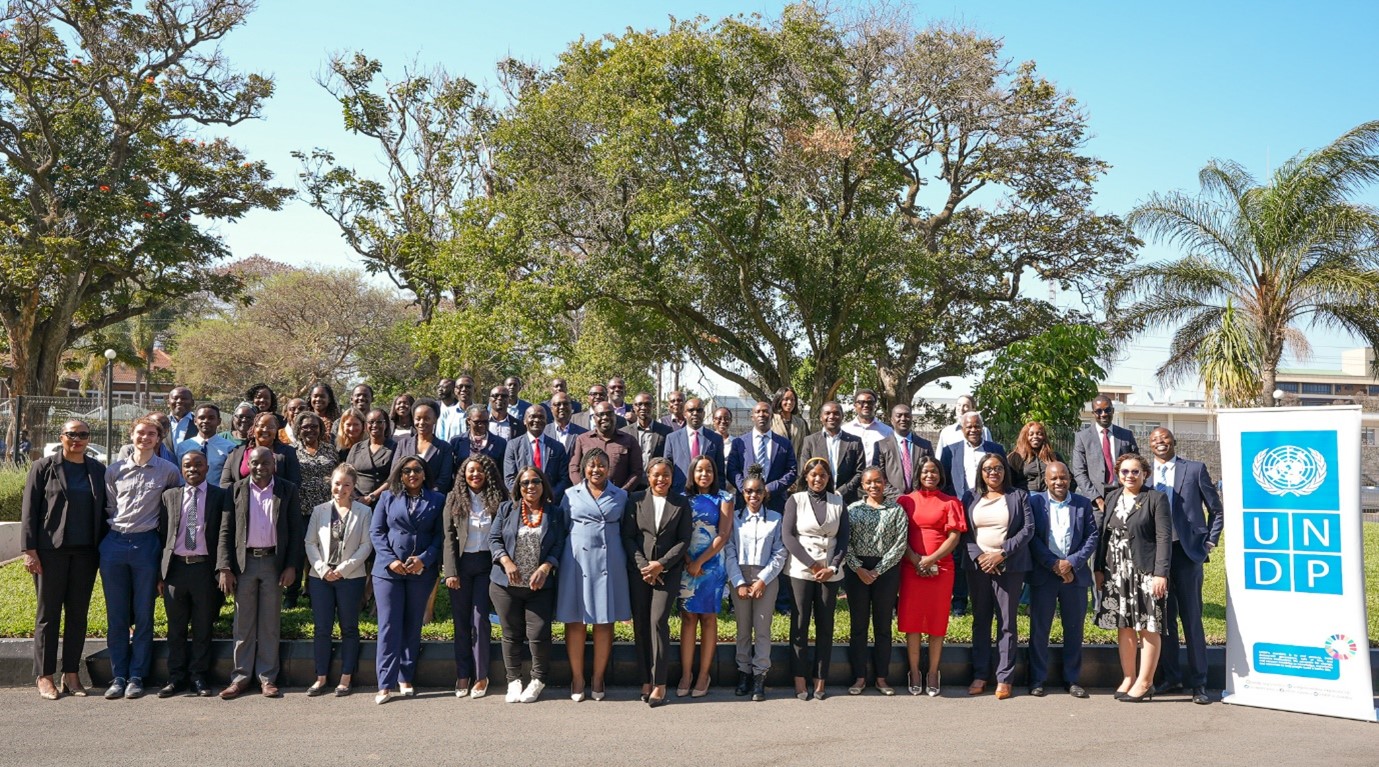
On 27 August 2024, BIOFIN Zambia hosted a workshop in Lusaka that focused on the ongoing study on nature-based financial risks in Zambia. The workshop brought together stakeholders from various sectors, including the financial sector, to discuss the preliminary findings and the potential impact of nature-related risks on the Zambian financial system. The workshop took place at a time when Zambia is grappling with one of the worst droughts in its history, emphasising the urgent need to address the intersection between environmental change and financial stability.
The main objective of this study, funded by the UK Department for Environment, Food and Rural Affairs (DEFRA), is to assess the vulnerability of the Zambian financial sector to nature-related risks. These risks pose a major challenge to economic stability and growth. A similar study was commissioned by the Financial Sector Deepening Africa (FSDA), which focussed mainly on the banking sector. This study builds on this as it covers the financial sector more broadly including capital markets, pensions and insurance in addition to the banking sector. These sectors are also heavily affected by natural disasters, which makes this study a crucial step forward. The study also emphasises the reciprocal relationship between finance and nature.
This work is directly linked to Target 15 of the Global Biodiversity Framework (GBF), which calls on companies to assess, disclose and mitigate risks and negative impacts on biodiversity. In this way, Zambia can make significant progress in ensuring that financial activities minimise negative impacts on biodiversity and contribute positively to nature conservation. As Zambia continues to face major environmental challenges, understanding and mitigating nature-based financial risks is critical to ensuring economic resilience. The preliminary findings of the study and discussions during the workshop highlighted the close link between nature and finance and emphasised the need for proactive measures to integrate these considerations into financial decision-making processes, particularly in the context of the ongoing drought.
In the future, the study will collect and analyse more data. Next steps include a scenario analysis to assess risks and opportunities and a cascade analysis to capture the broader scale and impact of these risks. The final report, expected by the end of the year, will provide a comprehensive insight into Zambia's natural financial risks and offer guidance on how to mitigate these risks.
BIOFIN will continue to champion this important area of work, which will not only enable the Zambian financial sector to address the challenges and capitalise on the opportunities arising from the ecological transition but will also support the channelling of financial flows in a way that promotes and enables nature to thrive.
Categories
Archives
- mars 2025 (8)
- février 2025 (2)
- janvier 2025 (5)
- décembre 2024 (4)
- novembre 2024 (5)
- octobre 2024 (14)
- septembre 2024 (6)
- août 2024 (9)
- juillet 2024 (7)
- juin 2024 (3)